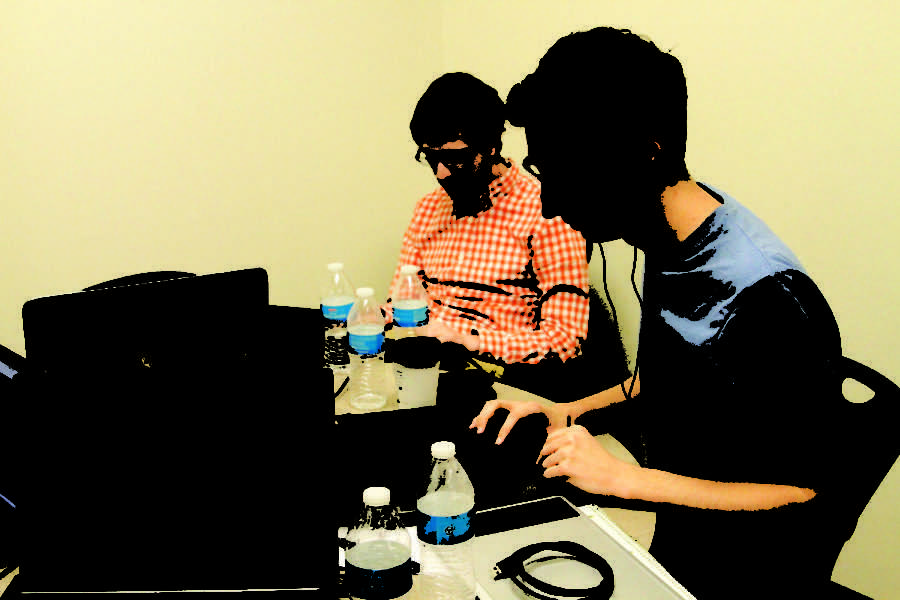ISU students win Money Game Jam, have financial fun
Then-senior Shaun Vanweelden and then-junior Dalton Mills participate in the Money Game Jam on March 29, 2014, at the Hixon-Lied Student Success Center. Students at the event worked in teams to develop apps to teach personal finance.
April 1, 2014
Future financial planning and debt management can be a headache for college students. The idea behind the Money Game Jam is to ease that stress for students.
The Money Game Jam is a 24-hour competition in which participating students work around the clock to develop a new game, website or mobile application that provides an interactive way of getting students involved in their personal finance.
The event was hosted starting at 11 a.m. March 29. About 40 students from a variety of majors participated.
This was the first year for the event at Iowa State and Jonathan Fox, director of Iowa State’s Financial Counseling Clinic and Ruth Whipp Sherwin professor of human development and family studies, said he hopes this becomes a yearly event.
“Our big initiative is to try to do something different. It’s not a lecture, it’s not a class, it’s not financial counseling. Hopefully this change of pace will result in something special,” Fox said.
The idea behind this event is to nudge students to properly manage their finances.
“Just by having in our car an MPG reader telling us what our miles per gallon change the whole way that we drive, we keep that high and save fuel.” Fox said. “We will love to see what the best ISU financial nudge students can come up with.”
Charudut Shetty, graduate student in computer science, contributed a lot towards the planning and organizing of this event.
“Participants aren’t necessarily creating anything related to mobile devices or computers. Anything goes.” Shetty said. “It could even be a really simple board game just as long as is provides a way for students to get involved with their finances.”
Shetty also said that because most students manage their finances and their debt in other ways, or not at all, he believes a game format will prove to be more successful in getting students involved.
“Games are very much addictive; so the winner must create something that students will actually want to use. It needs to be a creative and successful way of teaching personal finance better,” Shetty said.
Payouts of $1,000, $500 and $200 were given to first, second and third place winners of the Money Game Jam.
A team of four, including Camryn Williams, Zach Plata, Cassidy Williams and Shirley Wang won the contest.
Cassidy Williams, senior in computer science, said her team members were friends prior to the event, but that they didn’t discuss ideas until the event started.
“We made a game called Balance,” Williams said. “You have to make sure you balance out your life between homework, your money, your energy, your happiness all while maintaining balance in your bank account.”
Williams said in order to win the website and mobile application based game, you must finish your senior year of college by paying off all of your loans while maintaining solid grades, maximum happiness and maximum energy.
Williams the game is not easy, and not many people have succeeded so far. The team of four split the winnings evenly and has not yet decided what they are going to use the money for.

















